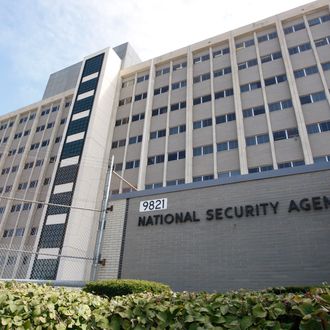
President Barack Obama today officially announced a set of updates to the National Security Agency’s data-collection practices, following the revelations last year by Edward Snowden of the program’s reach. The president proposed new controls on the extent to which the NSA tracks phone numbers, the permission it obtains in order to execute those searches, the secret court that grants that permission, and the ownership of the database itself. This is a sensitive, complicated subject with a lot of different interests holding stakes, and naturally, the reactions are already rolling in. We’ll keep you updated on what the chattering classes have to say about the speech and its contents, as those reactions become available.
“It’s really just basically a PR gesture.” — Glenn Greenwald, who broke the Snowden story for the Guardian, told Al Jazeera America. Greenwald later expanded on his opinions in a Guardian op-ed.
It’s really just basically a PR gesture, a way to calm the public and to make them think there’s reform when in reality there really won’t be. And I think that if the public, at this point, has heard enough about what the NSA does and how invasive it is, that they’re going to need more than just a pretty speech from President Obama to feel as though their concerns have been addressed.
“I am disappointed in the details.” — Senator Rand Paul, who is suing the NSA, in a post-speech statement.
While I am encouraged the President is addressing the NSA spying program because of pressure from Congress and the American people, I am disappointed in the details. The Fourth Amendment requires an individualized warrant based on probable cause before the government can search phone records and e-mails. President Obama’s announced solution to the NSA spying controversy is the same unconstitutional program with a new configuration.
Obama “directed the government to do something, without providing a path for how to accomplish it.” — Charlie Savage, of the New York Times, in the paper’s live blog.
But, as he is acknowledging, there is currently no way to do this. Some of the telephone providers are reluctant to play that role, and requiring firms to change the way they hold their data sets held by different firms could raise new privacy risks. An alternative, creating a consortium to consolidate and hold the data, “would be carrying out what is essentially a government function with more expense, more legal ambiguity, and a doubtful impact on public confidence that their privacy is being protected.”
“Obama doesn’t dare limit the NSA.” — Matt Drudge, being Drudge.
It’s “embarrassing for a head of state to go on like that for 45 minutes and say almost nothing.” — Julian Assange, speaking on CNN.
Although those national whistle blowers have forced this debate, this president has been dragged, kicking and screaming to today’s address. He is being very reluctant to make any concrete reforms. And unfortunately today we also see very few concrete reforms.
“We’re disappointed he did not completely halt the collection and analysis of bulk metadata.” — Ed Black, president of the Computer & Communications Industry Association, whose members include Google and Facebook.
We’re disappointed he did not completely halt the collection and analysis of bulk metadata. We would have liked him to have followed the lead of his appointed review group and call for greater examination of the NSA’s subversion of encryption standards, and for changes to the ways in which the NSA can access Americans’ content without a warrant (under Section 702 of FISA).
This post has been updated throughout.





























